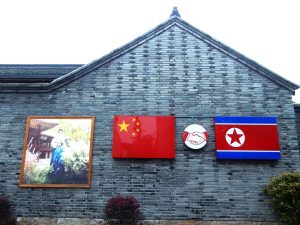North Korea recently expanded its list of prohibited media to include Chinese films and TV shows, marking a significant shift in its censorship policies. Traditionally, North Korea’s bans focused on South Korean and Western content; this new directive is the first to include Chinese media. This decision signals potential shifts in the country’s relationship with China, a longtime ally, alongside a tightening in domestic social policies.
Popular Chinese dramas and movies like “The Butterfly Lovers” and “Shanghai Bund,” which were widely viewed in North Korea, are now included on the forbidden media list. This development surprised many North Korean citizens, who previously watched these films and saw the close trading partner’s content as acceptable.
“I was surprised that Chinese movies and TV shows, which I thought were okay to watch, were designated as ‘impure recordings,’” a resident from South Hamgyong Province told Radio Free Asia (RFA).
The updated list – circulated nationwide in May and June – also includes South Korean songs and films, as well as media from India and Russia, though these additions come as no surprise to the domestic populace or international affairs experts.
The decision to ban Chinese media may suggest increasing strain in Sino-North Korean relations.
Bilateral ties reached their lowest point in decades following North Korea’s missile test launch near the Chinese border in 2017, which occurred prior to China’s inaugural Belt and Road Forum that same year. Despite several high-level meetings since then to warm relations between the two states, North Korea’s aggressive rhetoric has intensified along with an uptick in missile test activities.
In early 2024, Kim Jong Un announced a major policy shift toward South Korea, ruling out any possible peaceful Korean unification.
Additionally, over the course of the ongoing conflict in Ukraine, North Korea and Russia have tightened their cooperation. In June, the two nations pledged support to one another in the strongest pact seen between them since the Cold War. The deepening ties between North Korea and Russia have sparked significant concern in Washington D.C., and also caused mixed feelings in Beijing.
North Korea also sent a diplomatic delegation to Iran in April, signaling a strategic attempt toward diversifying its alliances and bolstering its nuclear and ballistic missile cooperation. This and the alignment with Russia may indicate that the Kim regime feels less dependent on Chinese economic aid, and is instead seeking cooperation with other states to bolster its own goals – and reduce China’s ability to dictate terms to Pyongyang.
Beyond the most visible foreign policy and military signals, there is the added element of historical narrative and national pride in the new ban on some Chinese media.
On the list of prohibited media, North Korea banned some internal lectures that discuss Chinese historical perspectives and claim that China seeks to distort North Korea’s history. The policy adjustment likely stems from discussions among military committee officials regarding issues of historical dispute, including China’s Northeast Project, which claimed the ancient Goguryeo Kingdom, a territory once spanning parts of modern-day Korea and China, was a regional government of an ethnic minority within China. This view contradicts Korean historical accounts, and has caused much public anger in South Korea.
Apparently the North Korean leadership wants to prevent the public from being exposed to these disagreements, and instead seeks to keep any discussions or recognition of the issue at the leadership level.
The expanding restrictions also serve North Korea’s ongoing effort to shield its population from foreign influence and maintain tight control over information. By banning even Chinese content, the Kim Jong Un regime is trying to cut the population off from any type of foreign content (despite continued smuggling activities). This move also follows recent orders that North Korean students abroad return for political ideological education.
The move to include Chinese media on the banned list marks a new signal by North Korea policy. North Korea’s broadened cultural crackdown paired with international provocation and cooperation shifts suggest a doubling down on North Korean social control and autonomy to pursue national interests by its leaders, perhaps increasingly at the potential expense of a close or cooperative Sino-North Korean partnership. Inevitably, these new dynamics significantly complicate China’s balancing act in the region.

































